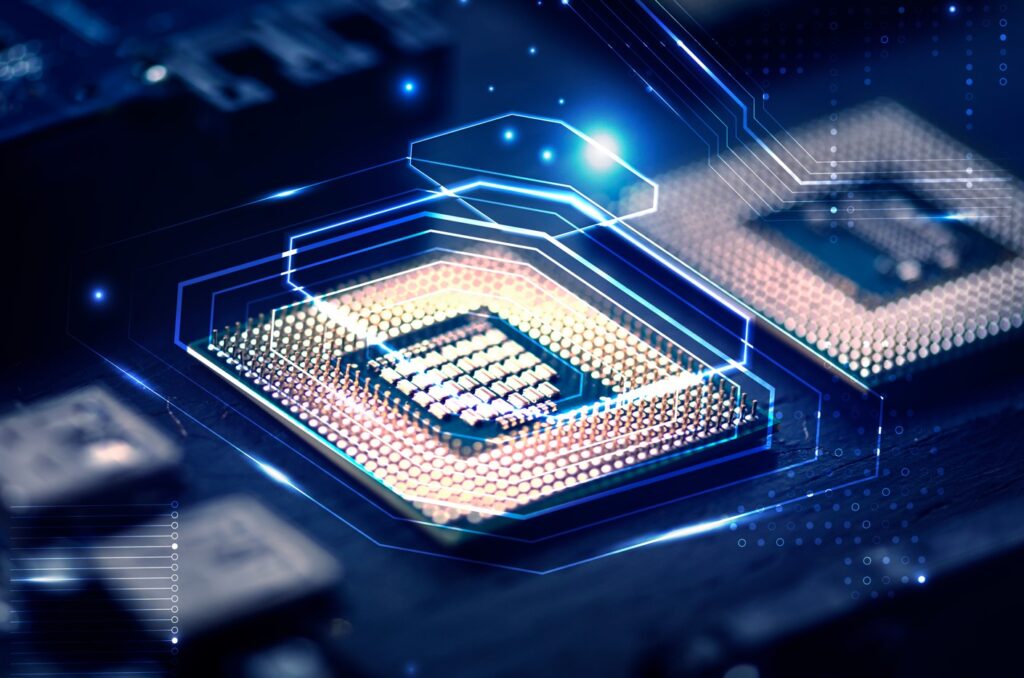How To Buy Cheapest Laptops in Business
It is critical to concentrate on important features that guarantee reliable performance, longevity, and portability when choosing inexpensive and cheapest laptops appropriate for business use. Here’s what you should consider while selecting a laptop

1-Processor (CPU)
Recommendation: Even when buying the cheapest laptops, look for at least an Intel Core i5 or AMD Ryzen 5 processor. These mid-range CPUs balance performance and cost, ensuring your laptop can handle multitasking and business applications.
2-RAM
Recommendation: A minimum of 8GB of RAM is ideal for running business applications like Microsoft Office, email, and web browsers without lag. If your budget allows, consider upgrading to 16GB for better multitasking. Although It’s quite difficult to get good RAM in the cheapest laptops, it is also essential to have a good amount of RAM for a smoother experience.
3-Storage
Recommendation: SSD (Solid State Drive) storage is faster than traditional hard drives and improves boot times and overall performance. Go for at least 256GB SSD, but 512GB SSD is preferable for storing larger files or projects. As we are talking about the cheapest laptops so we suggest even 256GB would do the trick.
4-Display
Recommendation: A Full HD (1920×1080) resolution display will provide clear visuals, which is important if you’re working with spreadsheets, presentations, or multitasking on multiple windows. A FHD display is a must in mid-level and the cheapest laptops.
5-Battery Life
Recommendation: Look for a laptop with at least 8 hours of battery life, ensuring it lasts through meetings or travels without constantly needing a charge.
6-Build Quality and Portability
Recommendation: Since this laptop will be used for business, consider lightweight and durable models. Business-class laptops often come with stronger build quality and are designed to handle travel and work environments.
7-Operating System
Recommendation: Windows 11 or Windows 10 Pro is ideal for business purposes as it offers better security features and compatibility with enterprise software.
8-Connectivity Options
Recommendation: Ensure the laptop has essential ports like USB-C, USB-A, HDMI, and an SD card reader. Additionally, Wi-Fi 6 or Wi-Fi 6e or at least Wi-Fi 5 will help with faster and more reliable internet connections. Thanks to the continuously evolving technology, it is possible to have these ports in the cheapest laptops.
9-Suggested Affordable Laptops:
- Dell Inspiron 15 3000 – A solid all-rounder with good performance, an SSD, and a Full HD display.
- Lenovo ThinkPad E16 – Known for its durability, security features, and keyboard comfort, ideal for business.
- Acer Aspire Vero – Affordable yet powerful enough for everyday tasks with decent battery life and good build quality.
- HP Pavilion 15 – A balanced option with a good screen, enough storage, and RAM for most business tasks.
Need any other suggestions to buy the cheapest laptops or for other inquiries. Please don't hesitate to contact us
FAQs:
For a business laptop, it’s ideal to choose at least an Intel Core i5 or AMD Ryzen 5 processor, even if buying the cheapest laptops. These processors provide a good balance between performance and affordability, allowing for smooth multitasking and running common business applications efficiently.
Yes, a business laptop should have good build quality and be lightweight for portability. Business-class laptops, such as those from the Lenovo ThinkPad or Dell Latitude series, are built to withstand frequent travel and different work environments.
Yes, buying a refurbished laptop can be a cost-effective option for business use, as long as it’s from a reputable seller. Many refurbished models come with warranties and have undergone thorough testing, making them a great option if you want high specs at a lower price.
The ideal screen size for a business laptop depends on your needs. A 13-14 inch screen is perfect for portability, while a 15-16 inch screen provides more screen real estate for multitasking. For those who need extra space, a 17-inch laptop is ideal but less portable.
For most business tasks, an integrated graphics card is sufficient. If your work involves graphic design, video editing, or other visually intensive tasks, consider a laptop with a dedicated GPU like an NVIDIA GTX or AMD Radeon.
A touchscreen is not a necessity for most business tasks, but it can be useful if you prefer to interact with your device more intuitively, especially if you use creative or design software. For general tasks like email, web browsing, and document creation, a regular display is sufficient
A comfortable keyboard is important for business laptops, especially if you type a lot. Look for laptops with a well-spaced layout, backlit keys for working in low light, and good key travel (the distance the key moves when pressed) to avoid strain during long typing sessions
Security is critical for business laptops. Look for features like fingerprint scanners, facial recognition (Windows Hello), TPM (Trusted Platform Module) for encryption, and BIOS-level security to protect sensitive data and company information
For an affordable yet effective business laptop, a budget of around $500 to $1,000 should suffice. This range covers laptops with reliable performance, decent build quality, and necessary business features like security and multitasking capabilities.
Yes, having a good warranty and long-term support is essential for a business laptop. Business laptops usually come with longer warranties and access to enterprise-level customer support, which ensures smooth operations if repairs or replacements are needed.


